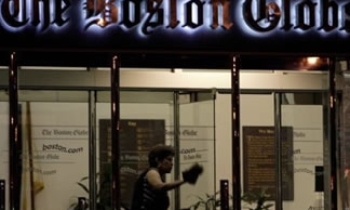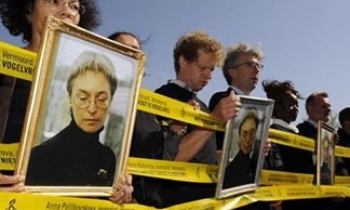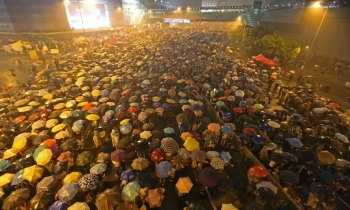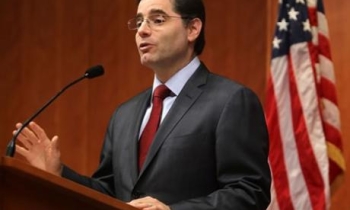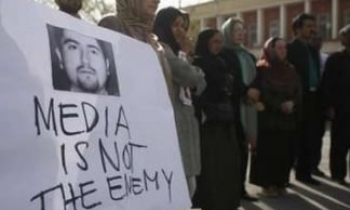French President Nikolas Sarkozy's comments about the state of the print media in the country has drawn criticism from journalists.
The European Federation of Journalists (EFJ), the European group of the International Federation of Journalists (IFJ), says it is worried about some proposals made by Sarkozy as he launched a national discussion on print media.
After the launch of the "Etats généraux de la presse écrite" (a national forum on written press that is organised by the government to consider changes in the sector) the unions, EFJ and IFJ last week said they were particularly concerned about proposals that could increase media ownership concentration and decrease journalists' rights over their own work.
"We are amazed by some contradictions in Sarkozy's speech," said Arne König, Chair of the EFJ. "How is it possible to declare at the same time that the press is not and will never be a product like the others and defend a relaxing of the rules on media concentration?"
Sarkozy had warned that the French press faced "death" unless it came up with new ways to compete with multimedia and free rivals. Sarkozy, according to British newspaper Telegraph, insisted there was room in the market both for advertising-funded freesheets and paying high-quality print, but that the sector had to face up to a problem it had failed to tackle for the "past 30 years" and would only get worse.
His words came at the start of two months of crisis consultations between journalists and media representatives chaired by an Elysée official. He wants to review state aid to the sector, which totalled more than one billion euros per year.
Some excerpts from a report by Agence France-Presse (AFP):
"It is madness to believe advertising can pay for all our news," he said. "The idea that all news can be free is an illusion that would spell the death of the written press." But he called for "changes to be put in place right now, to get the French press out of the unacceptable problems it has faced for 30 years, and that will only get worse if we do nothing."
Sarkozy called for a review of state aid to the sector, which he said reached one billion euros per year, saying the press "must be profitable, as the best way for it to be independent."
French newspapers are supposed to be among the least profitable in Europe. Their combined turnover plunged from 1.145 billion euros (1.6 billion dollars) in 2000 to 848 million euros last year, according to a recent parliamentary report.
The Guardian had some backgrounder:
The daily circulation of all French national papers totals 8m - half that of the UK and one third of Germany. The biggest daily seller in France is the sports paper L'Equipe. French newspapers' combined turnover plummeted from €1.145bn (£905m) in 2000 to €848m last year, and crises have hit dailies such as Le Monde, Libération and Le Figaro.
It costs more to print a national paper in France than its European neighbours because printworks are tightly controlled by the communist union, Le Livre, which has rigid hours and protections. Labyrinthine state controls of newspaper kiosks mean it is hard to find French papers on sale, especially beyond Paris.
The French state gives €1.5bn in direct and indirect state aid to the press each year. Keen to cut that budget, Sarkozy has ordered discussions on distribution, the role of journalists in society, and competition with free papers and the internet.
It is not by increasing ownership concentration in France that we will expand the reach of French media companies abroad, says EFJ, which is also astonished by Sarkozy's decision to give all leadership roles in the national discussion to the press owners.
In light of the "Etats généraux" and the French Presidency of the European Union, IFJ and EFJ are requesting a meeting with President Sarkozy to present to him these concerns shared by IFJ, EFJ and the French unions, SNJ, SNJ-CGT and F3C-CFDT.

